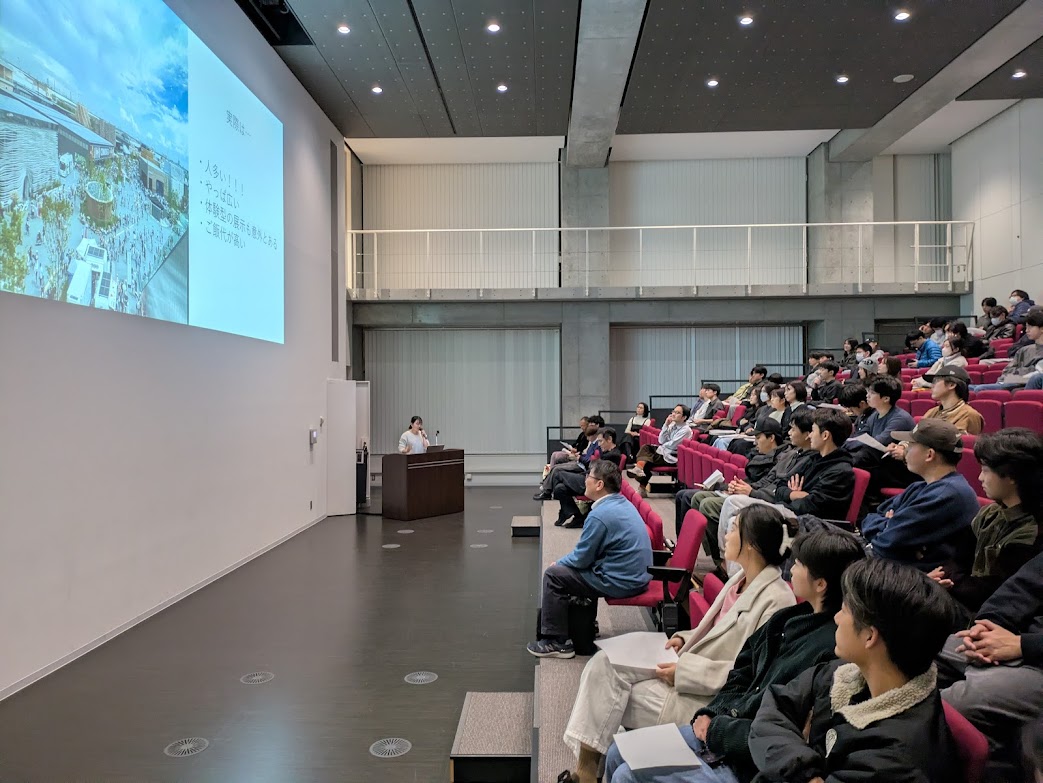[理工学部、建築・環境学部教養学会ミニ講演会]
(第56回理科系学生のための公開英語講演会)
Brain and Drug Addiction:
Brain Can Modulate Reward System
『脳と薬物依存』
講師: 理工学部、健康科学・テクノロジーコース
簑 弘幸

On June 1st, 2023, the 56th session of the English Lecture Meeting for Science Major Students was held under the sponsorship of the Academic Society of Faculty of Liberal Arts, inviting Doctor Hiroyuki Mino of the College of Science and Technology to give a lecture with the above title, which was the 6th opportunity on which the lecturer gave a talk with the title to the audience consisting mainly of science major students.
We are banned by our criminal laws from taking drugs. The reason why we are not allowed to take drugs is that as a consequence of taking drugs we would easily be addicted to them and under the condition of drug addiction, we would never be able to lead our life in sound health.
As a matter of course, scientists also say “no” to taking drugs. However, their categorical objections to taking drugs do not come from ethical or social standpoints; scientists’ claim that we should not take drugs is grounded on their observation of the fact that narcotics, once introduced into the brain, can adversely tamper with the way in which our healthy sense of pleasure is created, thereby changing it in an extremely harmful manner.

In this lecture, Professor Mino explained what exactly would happen in the brain if people took drugs, especially from a viewpoint of the discipline called medical and biological engineering「生体医工学」. Especially, the lecturer talked in detail on such important topics as i) what the pleasure is that we experience in our everyday life, ii) what the process is in which our feelings of pleasure are created in the brain; and most importantly, iii) in what manner various drugs can harmfully modulate the normal production of our sense of pleasure in the brain.
Professor Mino is a researcher in the field of science known as Neuroengineering「神経工学」and Biological Information Engineering「生体情報工学」, who is currently conducting research on such research topics as神経細胞の計算論的モデル構築とその情報処理の研究; 聴覚神経系での音の情報処理機構と認知の研究; and神経補綴のための電気刺激法の研究. Professor Mino’s lecture brought it home to the audience that drug abuse could be much more destructive for their life than they might have imagined it to be.
In the subsequent Q and A session, Professor Mino answered in detail all of the 21 questions raised by the audience. The following are some of the questions and answers exchanged on that occasion:
Q. I learned in a website that alcohol is as addictive as drugs. Therefore, I wonder why drinking of alcohol is rarely regulated in the world, apart from the cases where it is prohibited for religious reasons.
私はインターネットの記事で、アルコールも薬物と同程度の依存性があることを学びました。そのため、なぜ世界中で宗教的な理由は別としてアルコールが規制されないのか疑問を感じました。
A. I agree with you. Your question is exactly the same as mine. Please tell me what you think is the reason why alcohol is legal around the world. Probably, it is because alcohol is useful for activating the economy, enhancing social human communication, and reducing our personal stress. I think that’s why alcohol is a legal drug in almost all the countries in the world.
Q. I learned in the text that drugs can cause abnormalities by activating neurons. My question is, “Are there any other parts or sites in the human body than neurons in the brain to which abnormalities can be caused as a result of taking drugs? If so, what are the effects in such cases?”
私は教科書で薬物はニューロンを活性化させることで異常をきたすことを学びました。脳のニューロン以外の場所で薬物によって異常を起こす部位はありますか。また、どんな影響がありますか。
A. It’s a good question. I think drugs may affect our human guts or digestive function, because the function of our brain is known to be closely related to that of our guts or digestive function. It’s the so-called “brain-gut relationship,” where the neurotransmitter used in the human brain is generated in the human guts.
Q. I learned from an article in Wikipedia that while it was formerly estimated that glial cells are about 50 times more abundant than neurons in the human brain, recent studies suggest that they exist roughly in equal proportions. My question is whether this question is solved or not. Also, if it is already solved, what is the answer to this question?
「人間の脳にはグリア細胞は神経細胞の50倍ほど存在していると見積もられていたが、近年の研究では、グリア細胞と神経細胞はほぼ同じ割合で存在しているとされている。」ということをウィキペディアで見ました。これは現在解明されているのですか。
A. Though yours is an interesting question, I have to say that it’s still under investigation. Basically, the glial cells provide neurons with energy like oxygen and glucose do, but researchers find that they also contribute to the transmission of information in the brain. It is said that in Albert Einstein’s brain, there were about a couple of times more glial cells than in ordinary people’s brains. The number of glial cells in a brain might be related to the intelligence of its owner.







